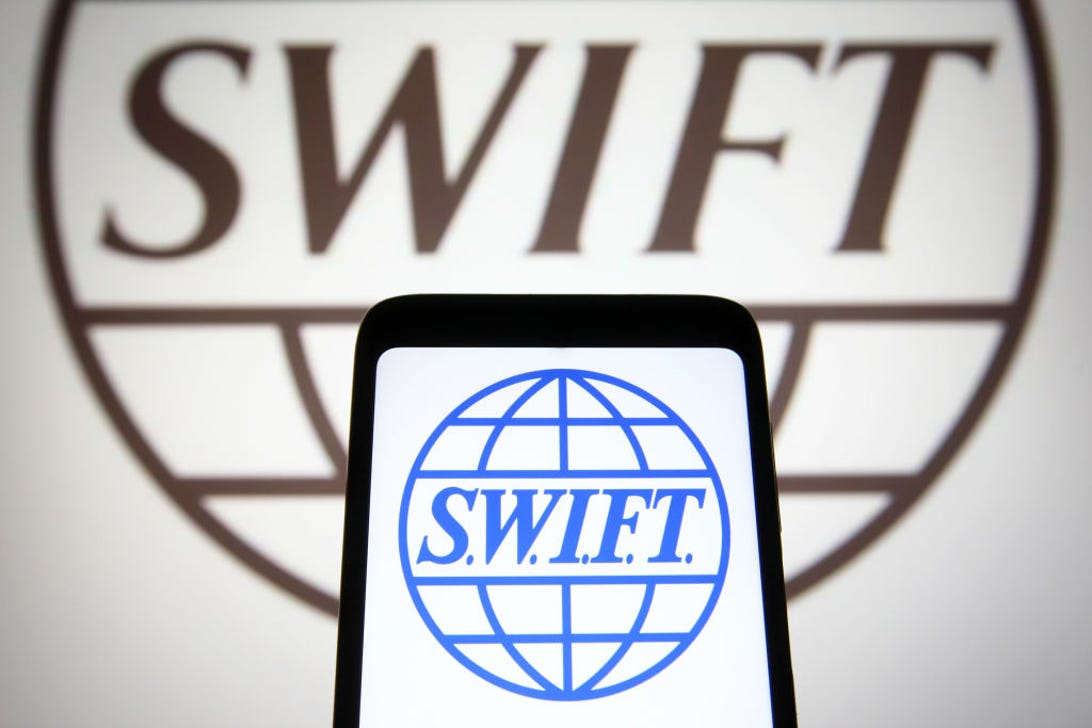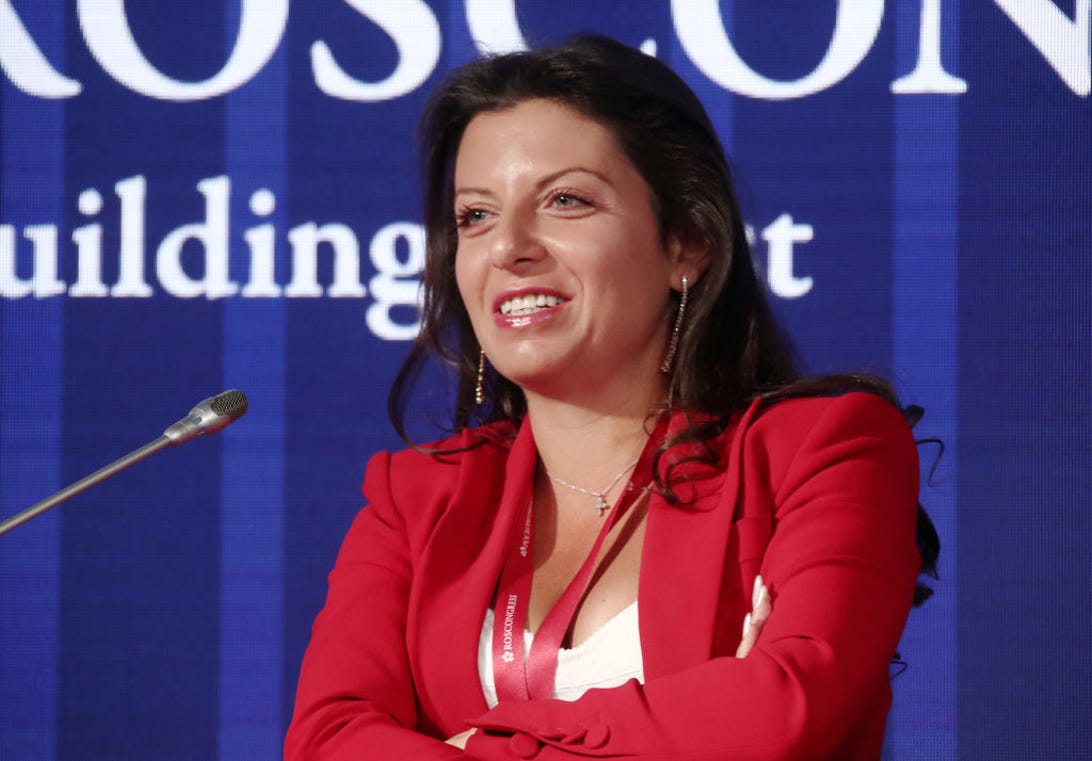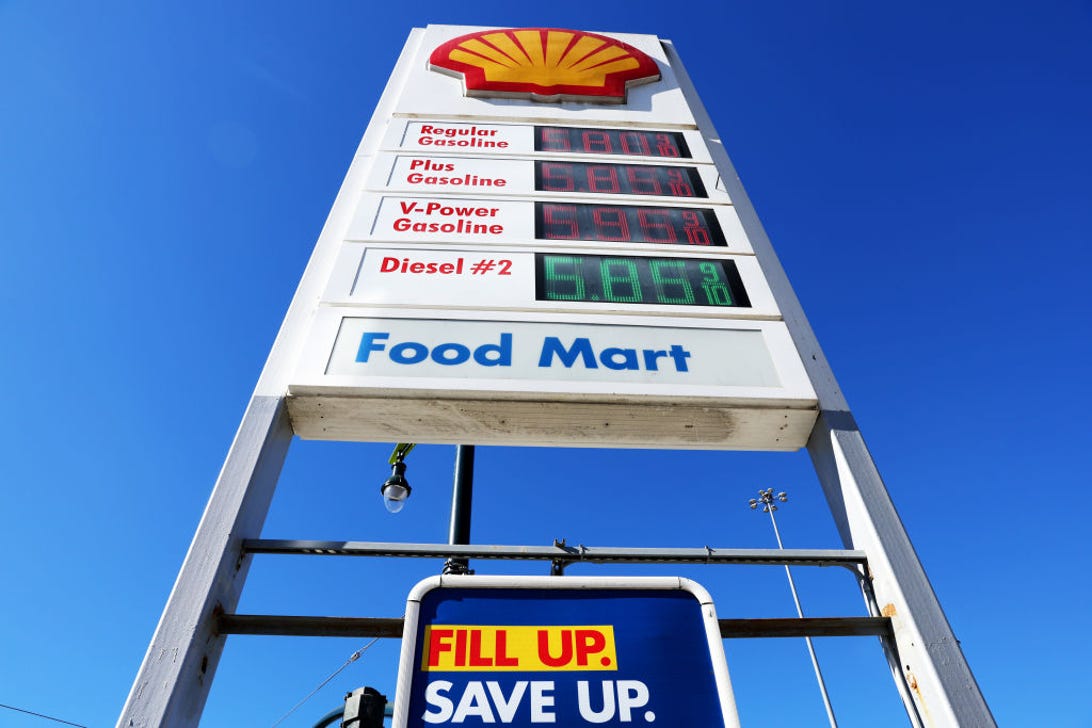What to Know About US and European Sanctions Against Russia – CNET [CNET]

President Joe Biden announced what he called a “devastating” slate of sanctions against Russia Thursday afternoon in the wake of the country’s invasion of Ukraine.
In a televised address from the White House, he singled out Russian President Vladimir Putin as the aggressor in the conflict.
“Putin chose this war,” Biden said. “And now he and his country will bear the consequences.”
The European Union has similarly levied several waves of economic sanctions, some of which are intended to reach Putin and his inner circle personally. But both the US and its allies are hesitant to kick Russia out of SWIFT, a global secure messaging system that links thousands of financial institutions — considered a “nuclear option” that could hurt the West as well as Moscow.
“It is always an option,” Biden told reporters, “but right now it’s not the position that the rest of Europe wishes to take.”
Here’s what you need to know about the US and European sanctions and how they could impact both Russia and the global economy.
For more, read about how the Ukraine conflict is influencing gas prices and the danger of retaliatory cyberattacks. Plus: Twitter accounts with credible information on the emerging crisis.
What sanctions is the US placing on Russia?
After closed-door discussions with leaders of the G7 industrialized nations, Biden announced Thursday afternoon that penalties against Russia would include strict export controls that will “impose a severe cost on the Russian economy, both immediately and over time.”
Those controls include export blocks on chips, software and other technology, which Biden said could severely damage Russia’s military and aerospace sectors.

A branch of Promsvyazbank in Moscow.
Mikhail TereshchenkoTASS via Getty ImagesIn addition, the assets of Russian developer VEB and Promsvyazbank, a state-backed bank in Moscow, will be frozen, according to the White House, as will those belonging to oligarchs with close ties to the Kremlin.
Biden’s announcement follows the first wave of US sanctions on Tuesday, which targeted other Russian financial institutions and the Russian government’s access to US capital.
European sanctions
Calling out the “barbaric attack” on Ukraine, EU Commission President Ursula von der Leyen said Thursday that the EU is freezing Russian assets and blocking Russian banks’ access to European financial markets.
An earlier round of EU sanctions on Wednesday included blacklisting Russian politicians and halting European trade with Donetsk and Luhansk, breakaway regions in eastern Ukraine whose independence Moscow recognized on Monday.

European Commission President Ursula von der Leyen announces sanctions after Russia’s military intervention in Ukraine.
Dursun Aydemir/Anadolu Agency via Getty ImagesThe EU is also targeting Russia’s trade, energy and transport sectors, Reuters reported. And Germany has already postponed indefinitely the Nord Stream 2 pipeline, intended to bring Russian oil to Western Europe via the Baltic.
European Union foreign policy chief Josep Borrell described the EU’s plan as “the harshest package of sanctions we have ever implemented.”
The US and Europe are also levying sanctions against Belarus, which Ukraine says Russia is using as a staging ground for its invasion.
Russia and SWIFT
One lever Ukraine’s Western allies seem reluctant to pull is blocking Russia’s access to the Society for Worldwide Interbank Financial Telecommunication, or SWIFT, a Belgium-based secure messaging network that links more than 11,000 international financial institutions, including the US Federal Reserve System, the Bank of England and the European Central Bank.

The Society for Worldwide Interbank Financial Telecommunication is a secure global messaging system that links more than 11,000 financial institutions.
Pavlo Gonchar/SOPA Images/LightRocket via Getty ImagesBanks around the globe use SWIFT to send and receive millions of financial messages and money transfer orders.
European lenders hold much of the nearly $30 billion in foreign capital in Russia, and blocking SWIFT would make it harder for them to access those funds.
The sanctions endgame
The sanctions announced prior to Thursday’s incursion were intended to stave off a full invasion into Ukraine. Now they seem more aimed at punishing and putting pressure on Putin and his inner circle.
According to The New York Times, individuals hit with travel bans, frozen assets and other penalties include Russian defense minister Sergei K. Shoigu, businessman and Putin ally Yevgeny Prigozhin and Margarita Simonyan, the head of state television network RT.

Margarita Simonyan, editor-in-chief of the Russia Today (RT) television news network, is among the Putin insiders whose assets have been frozen.
Valery SharifulinTASS via Getty ImagesThe hope, the Times reported, is that such personalized attacks “would strike at the lifestyles of Russia’s highest officials and make it difficult for Mr. Putin by making those around him unhappy.”
The impact on America
Russia is one of the world’s largest exporters of crude oil, providing roughly 40% of the supply for the European Union and 7% for the US.
Sanctions from the West could tighten that pipeline or it shut off altogether. On Thursday, crude oil prices surpassed $105 a barrel for the first time in eight years.
US energy analysts say the average price of gas, which is refined from crude, could soon hit $4 or even $5 a gallon at the pump.
If the conflict continues, crude could go as high as $150 a barrel, analyst Dan Dicker told Yahoo Finance, sending gas prices spiraling to $7 a gallon.

Gas prices in the US have continued to climb in the face of the Ukraine crisis.
Justin Sullivan/Getty ImagesOn Tuesday Biden said he was developing a strategy to “blunt gas prices” in the face of the Russian incursion.
In his Thursday remarks, the president said he planned to offset rising gas prices by releasing barrels from the Strategic Petroleum Reserve, a deep underground storage complex along the Gulf Coast holding an estimated 600 million gallons of crude.
“I know this is hard and that Americans are already hurting,” Biden said. “I’ll do everything in my power to limit the pain the American people are feeling at the gas pump.”
Russian retaliation
Russia is a major producer of platinum and the largest exporter of palladium, a metal used in automotive exhaust systems, fuel cells, mobile phones and even jewelry and dental fillings. Rising prices of essential metals could lead to price increases for manufacturers and, ultimately, consumers.

Experts warn Russia could retaliate against US and European sanctions with state-sponsored cyberattacks.
Bill HintonThere’s also the threat of cyberattacks, the kind that have already hit the Ukraine government, military and banking institutions.
The US departments of Treasury and Homeland Security have both sounded the alarm over destructive malware making its way onto computer networks run by US banks, hospitals, government offices and power grids in retaliation for sanctions against Moscow.

![what-to-know-about-us-and-european-sanctions-against-russia-–-cnet-[cnet]](https://i0.wp.com/upmytech.com/wp-content/uploads/2022/02/51911-what-to-know-about-us-and-european-sanctions-against-russia-cnet-cnet.jpg?resize=800%2C445&ssl=1)
![watch-champions-league-soccer:-livestream-barcelona-vs.-porto-from-anywhere-–-cnet-[cnet]](https://i0.wp.com/upmytech.com/wp-content/uploads/2023/11/154963-watch-champions-league-soccer-livestream-barcelona-vs-porto-from-anywhere-cnet-cnet.jpg?resize=300%2C169&ssl=1)
![ios-17-public-beta-is-out.-i’m-excited-about-these-new-iphone-features-–-cnet-[cnet]](https://i0.wp.com/upmytech.com/wp-content/uploads/2023/07/132592-ios-17-public-beta-is-out-im-excited-about-these-new-iphone-features-cnet-cnet.png?resize=300%2C169&ssl=1)
![‘andor’-episode-9-explained:-a-star-wars-escape-plan,-a-horrific-sound-and-a-stalker-–-cnet-[cnet]](https://i0.wp.com/upmytech.com/wp-content/uploads/2022/11/95021-andor-episode-9-explained-a-star-wars-escape-plan-a-horrific-sound-and-a-stalker-cnet-cnet.jpg?resize=390%2C205&ssl=1)